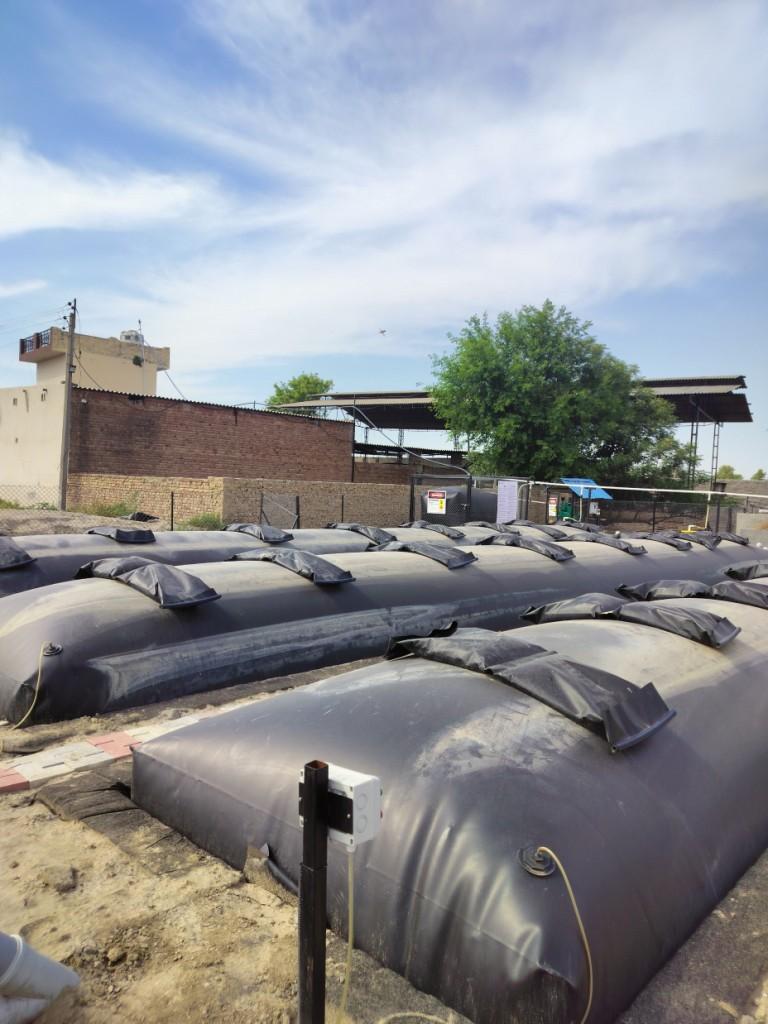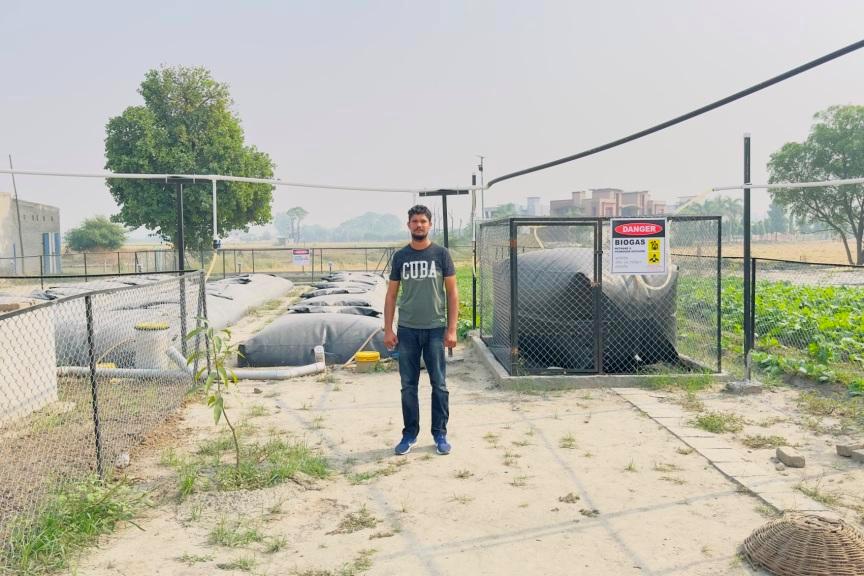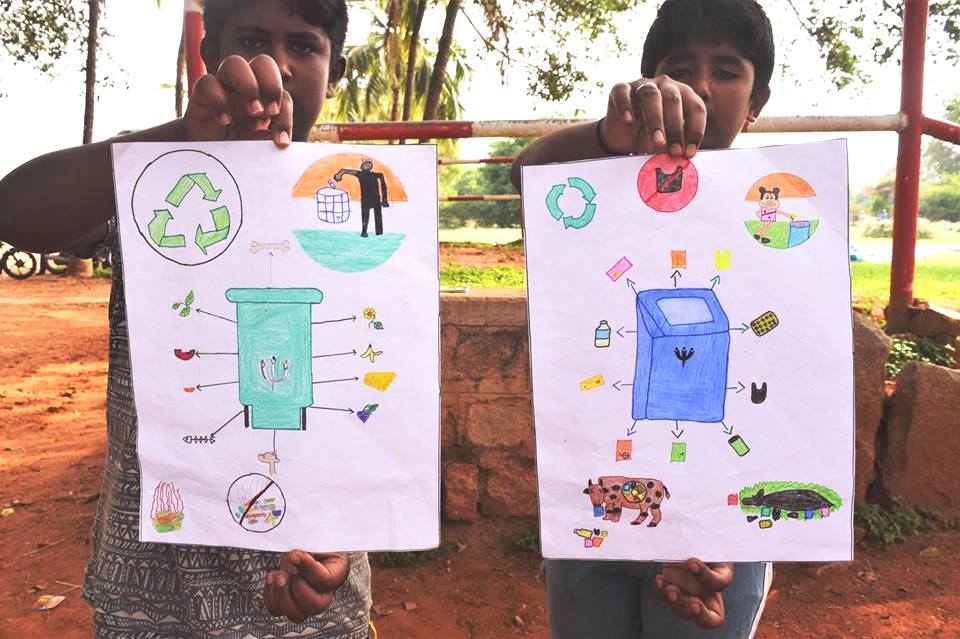 Nestlé is known for its commitment to ethics and sustainability, continually striving to reduce its environmental footprint. A testament to this dedication is their innovative biodigester project in Punjab and Haryana which mitigates greenhouse gas (GHG) emissions from exposed cattle manure, particularly on small dairy farms. Beginning with pilot projects, the company discovered the potential of biodigesters to significantly reduce methane emissions while producing biogas and nutrient-rich fertilizer. This success led to the installation of over 100 large and 3,300 small biodigesters across 24 districts in both states. These biodigesters are not only helping in reducing GHG emissions but also empowering small-scale dairy farmers and enhancing their livelihoods.
Nestlé is known for its commitment to ethics and sustainability, continually striving to reduce its environmental footprint. A testament to this dedication is their innovative biodigester project in Punjab and Haryana which mitigates greenhouse gas (GHG) emissions from exposed cattle manure, particularly on small dairy farms. Beginning with pilot projects, the company discovered the potential of biodigesters to significantly reduce methane emissions while producing biogas and nutrient-rich fertilizer. This success led to the installation of over 100 large and 3,300 small biodigesters across 24 districts in both states. These biodigesters are not only helping in reducing GHG emissions but also empowering small-scale dairy farmers and enhancing their livelihoods.
In this article, Mr. Sanjay Khajuria, Director of Corporate Affairs and Sustainability, Nestlé India takes us through the highlights of the project and how it aligns with the company's broader goals of sustainability, resource optimization, and regenerative agriculture.
From Waste to Wealth: Nestlé's Biodigester Success in Punjab and Haryana
Nestlé India's commitment to responsible sourcing and reducing greenhouse gas (GHG) emissions inspired the focus on biodigesters. Dairy farms, particularly the small ones where cattle manure is often left exposed, are significant sources of GHG emissions. This pressing concern inspired the company to explore biodigesters as a sustainable solution. By installing biodigesters, Nestlé India aims to reduce the GHG emission of dairy farms.
The journey began with pilot projects, which unveiled the potential of biodigesters to reduce methane emissions while producing valuable biogas and nutrient-rich organic fertilizer. These promising results fueled the ambition to scale the initiative, leading to the installation of more than100 large biodigesters and more than 3,300 small biodigesters across 24 districts in Punjab and Haryana.
How Biodigesters Work
Biodigesters convert organic waste, such as cattle manure, into biogas and slurry, through a process known as anaerobic digestion. This process breaks down waste in an oxygen-free environment, resulting in methane-rich biogas and a nutrient-rich byproduct that serves as fertilizers for the farms.
Harnessing the Power of Biodigesters
The benefits for dairy farmers and rural communities are substantial:
 - Reduction of Methane Emissions: By significantly cutting down methane emissions related to manure, biodigesters help mitigate greenhouse gases.
- Reduction of Methane Emissions: By significantly cutting down methane emissions related to manure, biodigesters help mitigate greenhouse gases.
- Renewable Energy Production: The biogas produced can be used for cooking. This serves as an alternative to LPG and other fossil fuels. The larger biodigesters are also capable of generating electricity.
- Cost Savings: Farmers save on LPG, enhancing their financial stability.
- Health Improvements: Reduced smoke from traditional fuel sources
- Soil Enrichment: The slurry serves as an organic fertilizer, improving soil health and reducing dependency on chemical fertilizers.
To ensure the long-term sustainability and maintenance of these biodigesters, Nestlé India has established robust support systems. This includes comprehensive training programs for farmers on the operation and maintenance of biodigesters, regular technical support, and partnerships with local organizations for ongoing assistance.
Aligning with Broader Sustainability Goals
Nestlé India's Biodigester Project aligns with priorities on sustainability, optimization of resources, and regenerative agriculture.By integrating biodigesters into its dairy supply chain, the company is reducing the GHG emissions from its dairy value chain and promoting regenerative agricultural practices. This project supports Nestlé India’s commitment to reducing GHG emissions within the dairy sector. Additionally, biodigesters foster a circular economy by transforming waste into valuable resources and enhancing the sustainability of operations.
Empowering Small-Scale Dairy Farmers
Traditionally bio-digesters used to be big and required large space and technical expertise to be maintained. Nestlé India partnered with Sistema, a Pune-based start-up, to make this technology available to small-scale dairy farmers. Small-scale biodigesters provide an efficient way to manage waste and produce biogas for household use. A farm with 3-7 cattle produces enough manure to feed the bio-digesters and generate biogas equivalent to 1.5 cylinders of LPG, every month. Nestlé India also helps these farmers with the installation of these bio-digesters and train them on their use and maintenance. This helps them enhance their livelihoods, reduce cost of living, and improve health outcomes through sustainable practices.
Looking Ahead: Expanding Our Impact
Nestlé India is looking at scaling up the biodigester project to cover more dairy farmers. The vision includes expanding this initiative to maximize its environmental and economic benefits.
Additionally, the company is continuously exploring similar initiatives that promote sustainable and regenerative agriculture. This comprehensive and integrated approach is based on a determination to reach net zero greenhouse gas emissions by 2050. Through the Biodigester Project, Nestlé India is not just addressing environmental challenges but is also enhancing the well-being of dairy farming communities, reflecting its unwavering commitment to sustainability and responsible sourcing.





 Nestlé is known for its commitment to ethics and sustainability, continually striving to reduce its environmental footprint. A testament to this dedication is their innovative biodigester project in Punjab and Haryana which mitigates greenhouse gas (GHG) emissions from exposed cattle manure, particularly on small dairy farms. Beginning with pilot projects, the company discovered the potential of biodigesters to significantly reduce methane emissions while producing biogas and nutrient-rich fertilizer. This success led to the installation of over 100 large and 3,300 small biodigesters across 24 districts in both states. These biodigesters are not only helping in reducing GHG emissions but also empowering small-scale dairy farmers and enhancing their livelihoods.
Nestlé is known for its commitment to ethics and sustainability, continually striving to reduce its environmental footprint. A testament to this dedication is their innovative biodigester project in Punjab and Haryana which mitigates greenhouse gas (GHG) emissions from exposed cattle manure, particularly on small dairy farms. Beginning with pilot projects, the company discovered the potential of biodigesters to significantly reduce methane emissions while producing biogas and nutrient-rich fertilizer. This success led to the installation of over 100 large and 3,300 small biodigesters across 24 districts in both states. These biodigesters are not only helping in reducing GHG emissions but also empowering small-scale dairy farmers and enhancing their livelihoods. - Reduction of Methane Emissions: By significantly cutting down methane emissions related to manure, biodigesters help mitigate greenhouse gases.
- Reduction of Methane Emissions: By significantly cutting down methane emissions related to manure, biodigesters help mitigate greenhouse gases.







.jpg)



